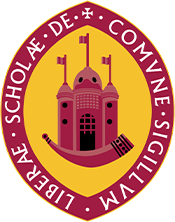Science
QEGS’ Science Faculty is high performing and popular. A significant proportion of our students go on to study science subjects at university – meet the teachers.
In Year 7, science is taught in Biology, Chemistry, Physics and Enquiry Processes lessons. From Year 8 onwards it is still taught as separate subjects but, the enquiry processes strand is integrated within the subjects.
Students in Years 7-9 are taught in form groups. At the end of year 9 the groups are reorganised into Science sets. At GCSE there are five sets; three sets sit separate GCSEs in AQA Biology, AQA Chemistry and AQA Physics and two sets take AQA Combined Science:Trilogy which leads to two GCSE grades. AQA Biology, AQA Chemistry, AQA Physics and OCR Geology are available at A Level.
KS5 Curriculum Intent - Science
Biology
At GCSE level pupils take part in the Biology Challenge Competition. A high number of students opt to study biology at A Level which we encourage with the combination of chemistry and/or maths due to the biochemical and mathematical demands of the course. Advanced A-Level students take part in the Intermediate and Senior British Biology Olympiad competitions, as run by the Royal Society for Biology. Our Year 12 students carry out fieldwork with the support of Lincolnshire Wildlife Trust at Snipe Dales and in Year 7 we visit the Wolds Wildlife Park.
Sixth form students provide mentorship and support for a huge number of younger students.
Chemistry
Chemistry is a practical subject that coordinates with the other two sciences, it incorporates problem-solving, data collection, analysis and evaluation from atmospheric and environmental chemistry to the structure and function of proteins and DNA. After GCSE many students continue to study chemistry at A Level. Staff are available at lunchtime to offer additional support and Sixth form students also provide mentoring support to younger students.
Physics
A popular subject at GCSE, which explores the physical workings of the world around us. It combines practical investigation and theoretical concepts with mathematical analysis to develop models of the natural world. The mathematical content increases at A-Level and the subject goes well with maths, other sciences or as a stand-alone subject.
Staff at GCSE and A-Level are all experienced physics teachers and they are available at lunchtimes to support students. Mentoring is also available if needed. Advanced A-Level students can opt to take part in the Physics Olympiad run by the Institute of Physics.
Geology
Encapsulating all scientific aspects of planet Earth from unravelling the dynamic explosive activity of volcanic eruptions to piecing together the evolution of the billions of lifeforms that have inhabited our world. The content is applied in nature, covering areas such as geohazards and mineral exploration and the department has links with local geoscience consultancies. Available only at Sixth Form the subject attracts considerable interest. Dr Aggett is available lunchtimes to support students.
There is currently a three-day fieldtrip to the Yorkshire coast and two day trips, one of which focusses on local geology. Students are also encouraged to bring in their own collections and ‘finds’. The Department is well resourced and has its own seismometer that is capable of recording earthquakes of magnitude 6 or higher anywhere in the world.
 Queen Elizabeth's Grammar
School
Queen Elizabeth's Grammar
School